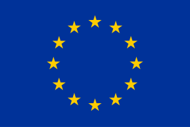Emerging eco-friendly solutions to plant & animal protection inputs – RELACS scientific publications

The RELACS project recently released two new scientific papers on promising plant and animal protection methods and strategies for reducing the use of disputed external inputs.
Treating powdery mildew in cucumber production with tagatose
Powdery mildew fungi (Ascomycota phylum) is a persistent threat to cucumber production in soilless systems, requiring application of a lot of chemical fungicides to keep yield losses to a minimum. In their article Foliar and root applications of the rare sugar tagatose control powdery mildew in soilless grown cucumbers,Corneo et al. investigate the development of eco-friendly alternatives, assessing the effectiveness of foliar and root applications of the rare sugar tagatose on cucumber. The study reveals that administrations of tagatose were more successful than traditional chemical treatments in lowering powdery mildew disease incidence and severity.
Riboflavin supplementation in laying hens
In the recent study Riboflavin for laying hens fed organic winter diets: effects of different supplementation rates on health, performance and egg quality, Leiber et al. seek to establish a safe lower threshold dose of riboflavin supplementation for laying hens fed organic formula. To identify a threshold at which insufficiency would be unlikely, researchers observed performance, egg quality, and health features in chickens supplemented with graded riboflavin levels in organic winter diets. The findings unveil that whilst a supplementation of only 1.5 mg riboflavin kg−1 resulted in some metabolic signs of deficiency, the addition of 3 mg kg−1 feed appeared to be sufficient with respect to the health and performance.
Learn more about these findings and other scientific publications on RELACS’s website and follow the latest project’s developments on Twitter and Facebook using @RELACSeu and #RELACSeu.
RELACS seeks to promote the development and adoption of environmentally safe and economically viable tools and technologies to reduce the use of external inputs in organic farming systems. IFOAM Organics Europe is responsible for the communication and dissemination of project results as well as the coordination of the science-practice-policy dialogue.


